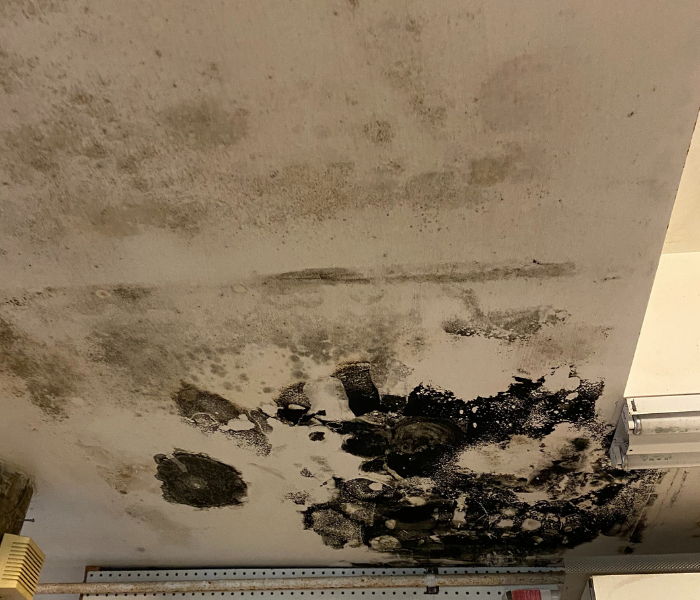Fast Action For Commercial Mold Removal in Guilford, CT
9/14/2021 (Permalink)
 When your need commercial mold removal in Guilford, CT - Our team of mold specialists are Here to Help.
When your need commercial mold removal in Guilford, CT - Our team of mold specialists are Here to Help.
When you find mold in your business or commercial property in Guilford, CT, you want to take immediate action to prevent the issue from becoming worse.
If not addressed, mold in your commercial building can cause allergens, irritants, damage building materials and affect personal items.
When you need a mold inspection for commercial mold remediation in Guilford, CT, our team is Here to Help!
Call To Schedule a Free Mold Estimate - 800-734-3213
Professional Mold Removal and Remediation
Free Mold Inspection and Remediation Estimate
Containment of Affected Areas
Air Filtration For Mold Spores
Office Mold Removal
Warehouse Mold Removal
Retail Mold Services
Mold Remediation After Water Damage
When a mold issue is found in your commercial building, you want to properly take care of the issue to make sure it doesn't come back or spread to other areas of the property.
To prevent future infestations, any moisture or water damage which caused the mold to grow also must be addressed. This is simply because mold thrives on moisture and will continue to produce mold colonies until the source of moisture is addressed.
Our team of IICRC certified mold remediation specialists have all the proper training, resources, and experience needed to provide professional commercial mold remediation in Guilford, CT.
Commercial Mold Remediation Process
Step 1: Mold Damage Inspection & Assessment
A Project Manager will inspect your commercial property for visible signs of mold and create a remediation plan. SERVPRO of Branford/Shoreline does not provide mold testing services.
Step 2: Mold Containment
Before starting mold removal in Guilford CT, SERVPRO of Branford/Shoreline takes steps to prevent the spread of mold around your property during the remediation process. This may include utilization of negative air chambers, containment, or turning off the HVAC system on your property.
Step 3: Air Filtration
Our team uses air scrubbers and HEPA vacuums to capture mold spores in the air or on materials. This also helps to prevent the spread of mold during the cleaning process.
Step 4: Mold Removal & Removing Mold Damaged Materials
Depending on the extent of mold growth and the moldy surface or building material affected, our team will use various techniques for mold removal.
Porous materials like drywall and carpeting may need to be removed and thrown away to prevent the recurrence of mold. Our team also utilizes antifungal and antibacterial sprays to eliminate mold colonies and prevent new ones from forming.
Step 5: Cleaning and Sanitizing
In this step, our team cleans and sanitizes to remove odors or treat belongings that have been affected by mold.
Step 6: Restoration
Depending on the scale of your commercial mold removal in Guilford CT, there may be the need for repairs or reconstruction of your property. Unlike other commercial mold remediation companies, our in-house construction division can seamlessly take over to completely restore your home or business to pre-mold conditions.
Mold in Commercial Buildings: FAQ
As the local commercial mold cleanup specialists in Guilford, our team receives many questions regarding mold and the remediation process.
Here, we're answering the top questions from local business and property owners about mold infestations in their buildings.
How can I prevent mold in my commercial property?
The best way to prevent mold is to act quickly when your property is affected by water damage or has a moisture problem. Mold spores can quickly reproduce into colonies when exposed to high levels of moisture in as little as 48 hours.
How much does mold removal cost?
It's hard to generalize the cost of mold removal because it depends on the amount of mold, the type of building materials affected, where the mold is located, and more.
SERVPRO of Branford/Shoreline provides free mold removal inspections and estimates.
Can you remediate mold yourself?
While there's many how-to guides for DIY mold removal, its not recommended. This is because there is a specific way to properly remediate mold so that it does not immediately grow back. Without the proper training, resources, and equipment, it's likely for mold to regrow when you remove it yourself.






 24/7 Emergency Service
24/7 Emergency Service